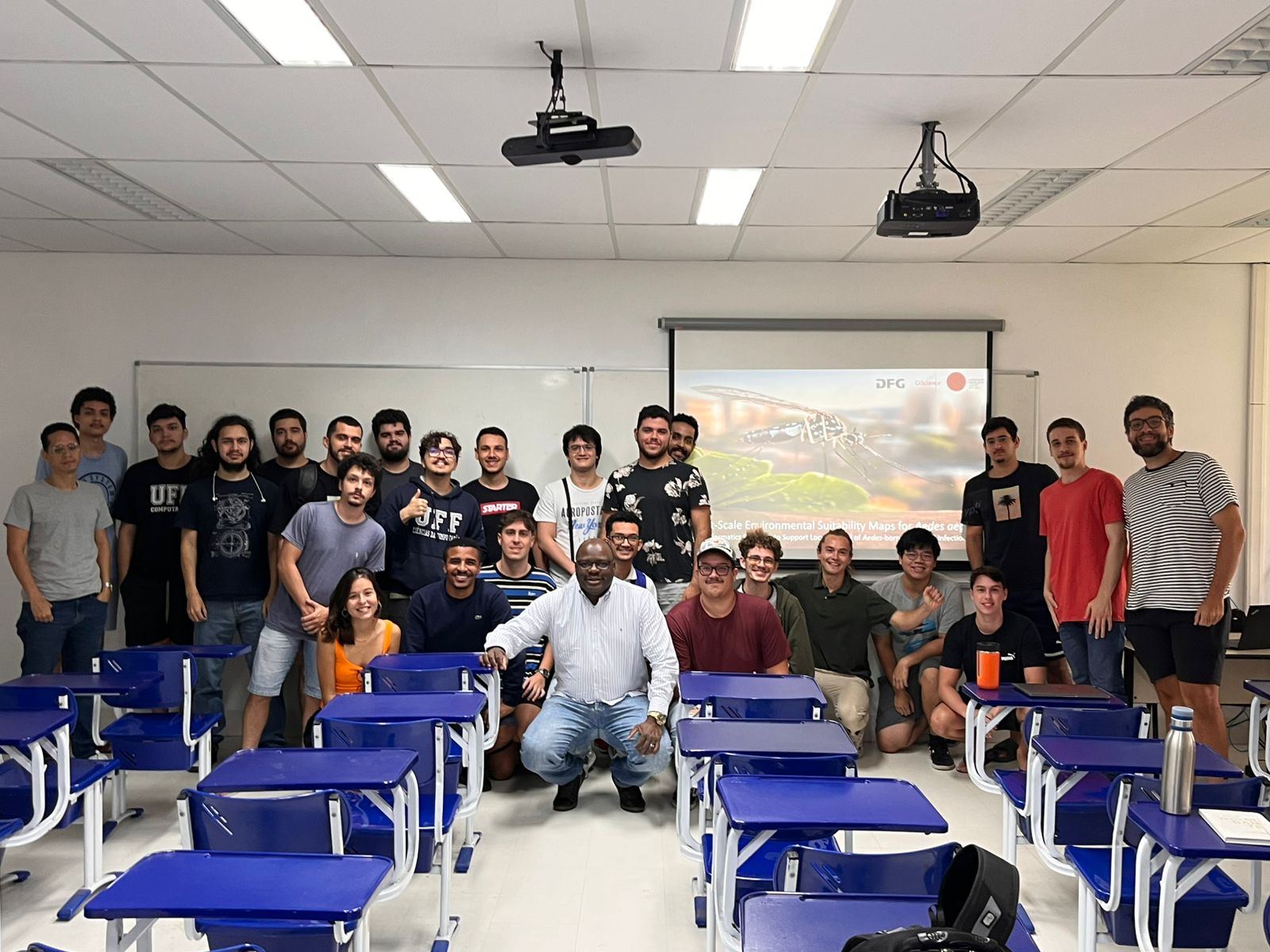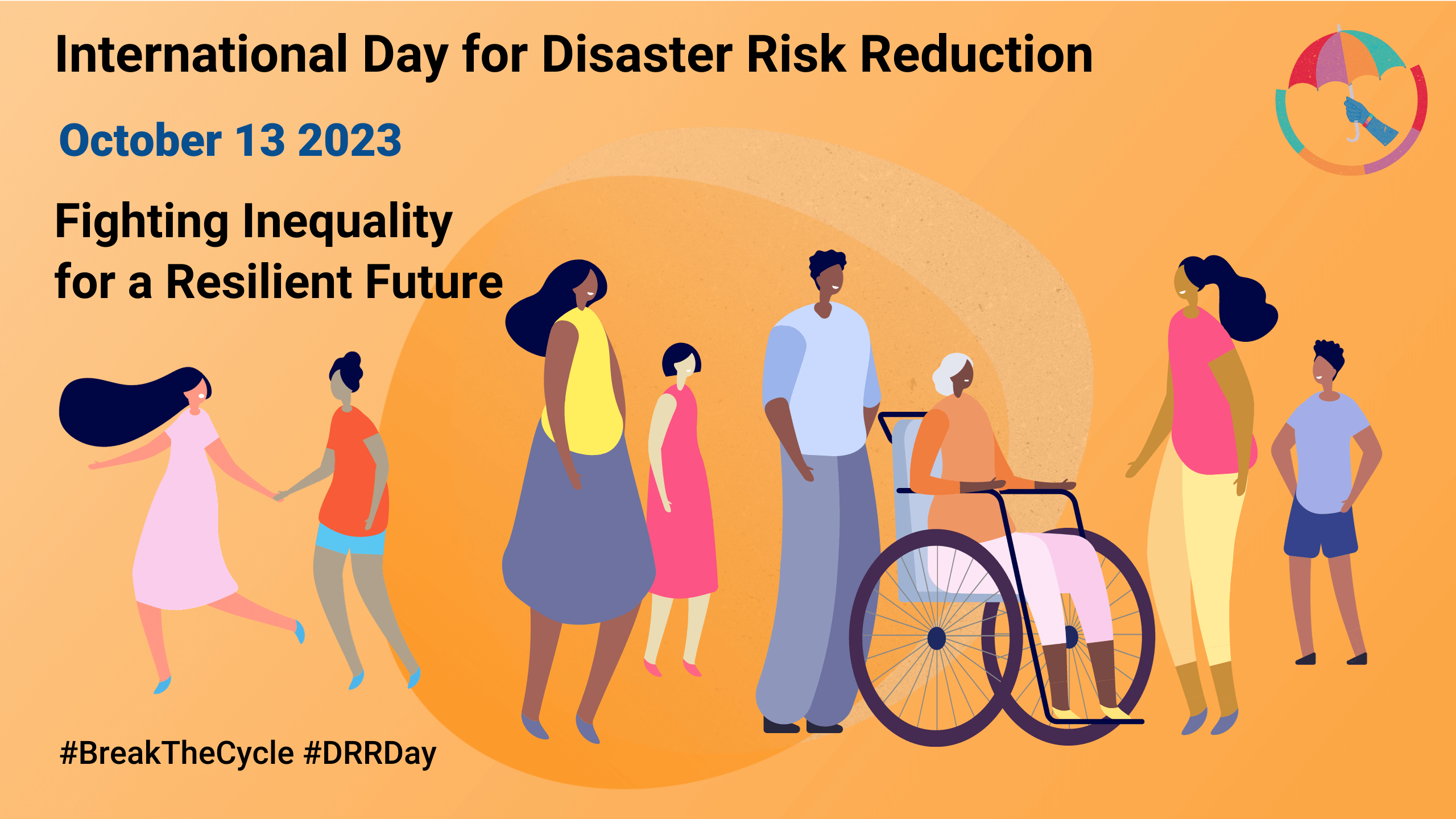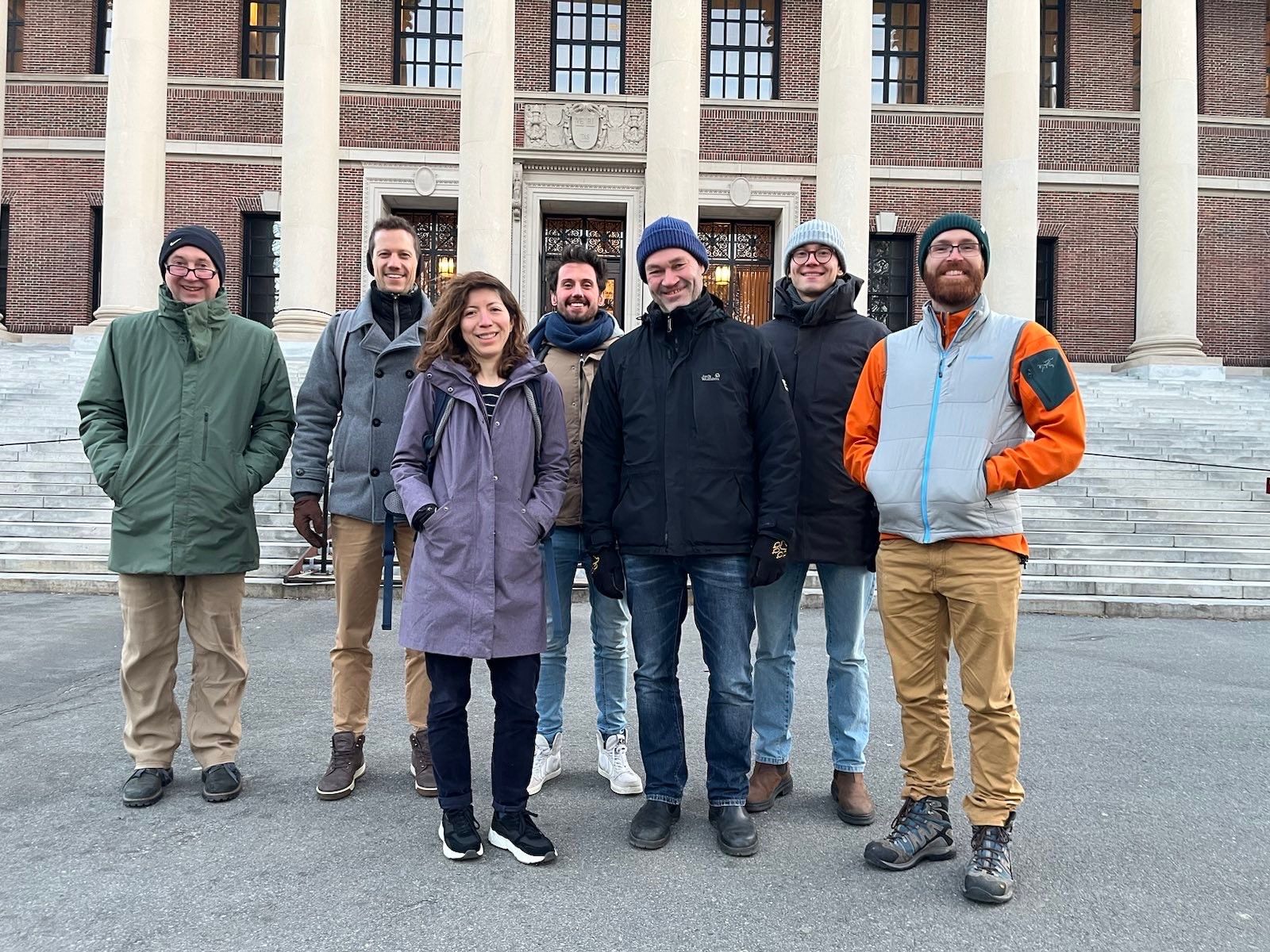Category: Public Health
-

Research Visit to Rio de Janeiro
Building on ongoing efforts to enhance urban health management and mosquito-borne disease monitoring in the municipality of Rio de Janeiro, PhD candidate Steffen Knoblauch returned to the city for a second visit deepen collaborations and explore further applications of his research findings. He delivered lectures at several research institutions such as Universidade Federal do Rio…
-

Advancing Vector Control Through GeoAI: Insights from Steffen Knoblauch’s talk at The Program of Scientific Computing (PROCC) at FIOCRUZ
On May 15th, the Program of Scientific Computing (PROCC) at Fiocruz hosted Steffen Knoblauch, a GIScience Ph.D. candidate, for his presentation titled “GeoAI 4 Dengue: Harnessing Geospatial Big Data to Guide Vector Control.” This event, organized in partnership with The Global Health Network Latin America and the Caribbean (TGHN LAC), provided a platform for academic…
-

Today is the International Day for Disaster Risk Reduction!
Did you know that October 13th is the International Day for Disaster Risk Reduction (IDDRR)? Since 1989, the United Nations Office for Disaster Risk Reduction promotes a global culture of risk-awareness and disaster reduction on this day and encourages the community to share their events, promotions and ideas regarding disaster risk reduction. Under this year’s…
-
Research Visit at Universidade Federal Fluminese (UFF) in Rio de Janeiro
In context of his research on mosquito monitoring and inner-urban dengue occurence, PhD student and GIScience team member Steffen Knoblauch visited the “Universidade Federal Fluminese” (UFF) in Niterói, State of Rio de Janeiro, Brazil. He was invited to meet collaborators and professors of UFF and to present his work in “Dengue Risk Modelling at an Urban…
-

Advancing Geospatial Techniques for Vector-Borne Disease Research: Insights from GIScience-CSIAD Collaboration – a conference recap
Recently, Hanse-Wirtschaftskolleg hosted its meeting which brought together experts from GIScience and CSIAD lab, along with renowned researchers from universities in Germany, Thailand, and Ghana, serving as a platform for interdisciplinary collaboration on vector-borne diseases. This event brought together esteemed researchers to share their expertise and insights into combating mosquito-borne illnesses. As an invited speaker,…
-

GeoEpi at CGA 2023: From Geospatial Research to Health Solutions
Featured photo: The geoEpi team attending CGA 2023. Back row from left: PD Dr. med. Thomas Jaenisch, Assoz. Prof. Dr. Bernd Resch, Dorian Arifi and Steffen Knoblauch. Front row from left: Dr. rer. nat. Ivonne Morales Benavides, Apl. Prof. Dr. Sven Lautenbach, and Dr. Yannik Roell. Ever since Dr. John Snow’s 1854 tracing of a…
-
Assessing road criticality and loss of healthcare accessibility during floods: the case of Cyclone Idai, Mozambique 2019
Featured Image: Road network analysis for the driving profiles. A Normal conditions before the flood event. B Evolution of scores after the floods induced by Cyclone Idai. The lower row shows a close-up of the area surrounding the city of Dondo The ability of disaster response, preparedness, and mitigation efforts to assess the loss of physical access to health…
-
Open Healthcare Access Map Update and HDX
Last year we started the Open Healthcare Access Map. Initially, only a few countries and later on continents were featured. Today, we are pleased to announce that we are releasing a number of previously missing countries, achieving global coverage. The Open Healthcare Access Map uses healthcare facilities extracted from OpenStreetMap, the isochrone method from openrouteservice…
-
Access to safe abortion in Germany
Our team thoroughly enjoyed the newly in-person State of the Map 2022 in Florence. We attended workshops, talks, and had the opportunity to present our own poster about the accessibility of abortion clinics in Germany, which will be discussed in this post and can be found here. In the following blog, we’ll explore more information…
-
Open GIScience PostDoc positions on understanding the relationships between “Urban nature experience, biodiversity and mental health”
We call for applications to postdoctoral positions within the Heidelberg Mannheim Health and Life Science Alliance “Innovation Campus” for Inter-institutional project. The Central Institute of Mental Health (ZI), Prof. A. Meyer-Lindenberg, the GIScience Research Group at Heidelberg University (Prof. A. Zipf), the 3DGeo Group (Prof. B. Höfle); and the Department of Biodiversity and Plant Systematics…
-
Global Health Academy 2021: workshop material online
Last week, the Global Health Academy 2021 took place in an online format with a focus on the COVID-19 pandemics. The conference was conveyed by the Heidelberg Institute of Global Health (HIGH) and aimed at practitioners, researchers and PhD students in the public health domain. Dr. Sven Lautenbach with support by Steffen Knoblauch and Marcel…
-
Global Health Academy Heidelberg 2021
Next week Tuesday and Wednesday, 2.-3. November the Global Health Academy will take place. An online forum for an open exchange, debate and training on Global Health challenges. The Forum is hosted by the Heidelberg Institute of Global Health together with the Heidelberg Graduate School of Global Health. In close collaboration with the Institute of…


